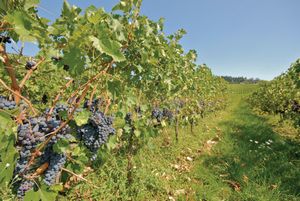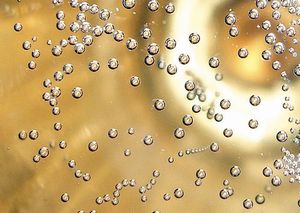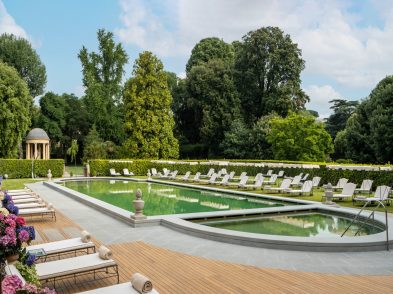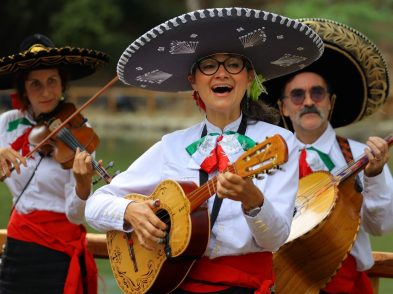Whether you are looking for a historic festival, Roman ruins, great wine and seafood, or one of Europe’s top beaches, little known Grado has it all. And the perfect time to go there is the first weekend in July, when, each year since 1237 Grado honours the Virgin Mary for saving its citizens from the plague.
This year the festival will take place on July 3. Early Sunday morning a statue of the Madonna will be carried from the Church of Santa Euphemia, through the streets of Grado, to the port. From there, the “flagship” carrying the statue and the rest of the fleet of participants will go to the island of Barbana, the site of another famous Madonna statue, and back. Lots of opportunities for photos!
July is also devoted to a “Festa del pesce azzurro” – blue fish festival – in all the local restaurants. You won’t want to miss the local “boreto,” a fish stew which comes in as many variations of ingredients as there are cooks.
But everyone agrees the fish has to be fresh from Grado’s lagoon. Of course, local wines are recommended to accompany the local fish.
Wines from the Friuli Venezia Giulia region have been prized since the days of the Romans and were used as gifts by the rulers of Venice. The region is best known for the wines produced in its Colli Orientali area (the Eastern Hills), and of these, the best known single wine is the Fruili Tocai. This white wine generally has a pale yellow colour with touches of green. Its aroma can be reminiscent of pear and almonds. Most people find it has a good structure, is warm in the mouth (due to high alcoholic content), and has a pleasant persistence.
So, you’ve seen the parade, had some local fish, and a nice bottle of wine, what else does Grado offer? How about the beach or some spa treatments? In the 19th century, the Austrian Emperor Franz-Joseph proclaimed Grado the “Official Health Resort” of the entire Hapsburg Empire. Grado has more than 20 kilometres of beaches that have won numerous awards. It has received the Bandiera Blu d’Europe as one of the top beaches in Europe, as well as Italy’s Best Beach title in the Regina delle Spiagge program. These awards take into account many factors, some of which include the quality of the summer facilities and local hospitality, along with the quality of the water, of the coast, and of the urban environment.
Grado’s Spa Centre has been recently renovated and has abundant choices for massages, sand-baths (a local specialty), saunas, and steam baths: everything you would expect in a spa that has been recognized as one of Italy’s best for over a century.
Grado’s history dates back to Roman times, when it was a military port for the nearby city of Aquilea. There are some ruins and mosaics to be seen in Grado’s historic centre for the casual observer. Aquilea itself, only 5 kilometres inland, has been recognized by UNESCO as a Heritage of Mankind site, and it has a stunning 4th century church, extensive excavations, and the National Archeological Museum, for those who want to know more.
If time permits, it’s very easy to take a regularly scheduled boat north to Trieste or south about an hour to Venice. To get to Grado from Florence, a car is best, but the train is also an option: about four hours with a change at the Mestre Station near Venice. See you there!








